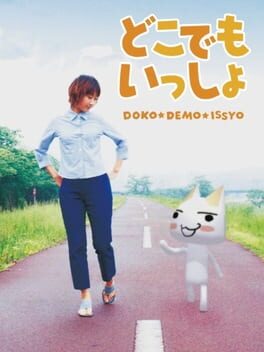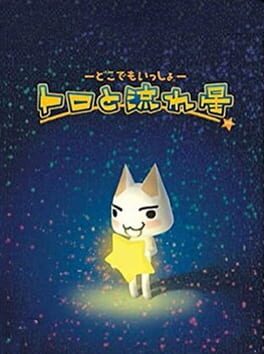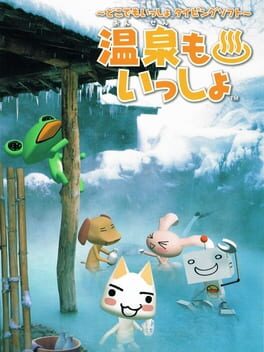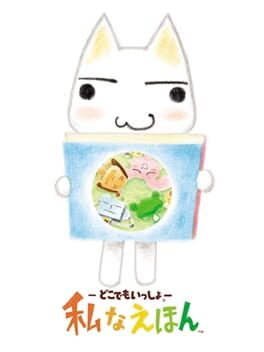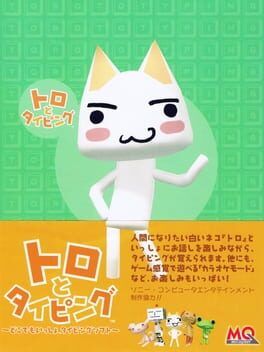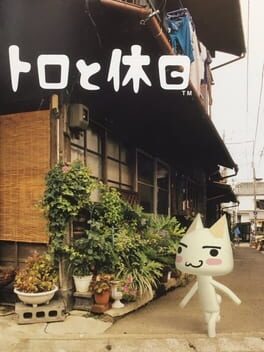

Doko Demo Issyo (どこでもいっしょ, Together Everywhere) is a 1999 Video Game developed by Bomber Express and published by Sony Computer Entertainment Inc. for the PlayStation, released on July 22, 1999 in Japan. Doko Demo Issyo was one of the games that used the PocketStation; it was instrumental in making the device sell so well in Japan. It is the first game in the Doko Demo Issyo Series. Doko Demo Issyo is a communication game, a game where you interact with the characters through words and phrases. The player can choose from five characters known as Pokepi and interact with them in an apartment. They can be taught words, and the player can answer questions asked by them. The biggest feature of Doko Demo Issyo is its compatibility with the PocketStation, a handheld device that often came packaged with the game, and its reliance on the device made the PocketStation required to play the game. It allowed the player to take any of the Pokepi with them anywhere, and they can continue to interact through the device. A remaster of the game was released on the PlayStation Portable on December 7, 2004 for the franchise's 5th anniversary. A port of the original game, separate from the remake on the PSP, was also released on the Playstation Vita in 2013.
Also in series
Reviews View More
Although the game is mostly cutesy, as more days pass and you build a stronger relationship with them, sometimes the topics they talk about can take serious turns, like how Jun once brought up things such as "hikikkomori life" and her bad childhood memories. Never in my life i thought i would see a game from the PS1 era with an alcoholic pink cartoon bunny talking about being a NEET. It might sound like BS, but this is actually in the game. It genuinely shocked me when i thought i had already heard everything the character had to say.
As far as i know, there are different endings. A bad ending can happen if you don't interact with your Pokepi for days, prompting them to leave out of loneliness, with a sad note on their diary. The good endings usually happen after a bit more than 10 days have passed, when you interact more actively and, well, are simply nice to them, and they end similarly, only with heartwarming notes instead. Either way, no matter what, it always ends with the characters leaving. The director was often told by many people that they were upset that their Pokepi would leave and asked if there was any way to keep them for longer, or even indefinitely. But i think that's something that kinda encapsulates the beauty of this experience. Toro and all the other Pokepi are not just virtual pets. They're Pocket People, with autonomy, living their own lives, who wish to learn more about the real world through you, with different goals in mind. Such as Toro wanting to become a human.
You have to keep in mind that this game has a huge language barrier: It was a game released to promote the PocketStation, a playstation accessory that only ever released in japan, and the japanese language and kana are so integral to the interactions in this game that i think it's pretty easy to see why these games never got localized outside of a few spinoffs like the PSVita social game "Toro's Friend Network". I tried playing it with the google translate scanning the japanese words, but even at minimum text scrolling speed, all the speech crosses automatically so fast and with no way to scroll back up that the shitty and slow Google UI just can't keep up with 70% of the dialogue at any moment. There's really no way around learning Nihongo in order to have the smoothest experience with this game. It also doesn't help that there's also very little documentation of the PS1 game out there.
I'm really only rating it lower than most other reviews because it seems this one version has pretty much been bested by latter titles and feels somewhat lacking in dialogue options in comparison. I'd suggest starting with the PSP version, the PS3 game Mainichi Issho, or some other latter entry for anyone interested in this series, specially since you won't need to track down a PocketStation in order to play it. That said, for this version at least, if you have a pocketstation already this game is worth checking out for playing the authentic way. A very kokoro-touching game, if you have a strong sense of suspension of disbelief.
The Doko Demo Issyo franchise has so much to offer, it’s such a shame it never made it to the states. The name roughly translates to “together anywhere” or “everywhere together”. The main character of this franchise is a white cat named Toro. Toro’s main goal in life is to be a human, so he chooses you as his personal trainer to help him on his quest to become more human! Except, he doesn’t REALLY choose you, rather you choose him or any other pokepi character you’d like to play the game with. “Pokepi” is a mashup of the words “pocket” and “people” and it is what the characters in this franchise are called. You can choose from 5 pokepi; Toro the white cat, Jun the pink bunny, Pierre the brown dog, Ricky the green frog, and Suzuki the robot. They all have varying personalities; Toro, Jun, and Pierre tend to be more silly and dramatic, Ricky is aggressive and short-tempered, and Suzuki is very serious yet silly. They all have their own reasons for wanting to learn about humans, but the primary objective of this game is to teach your pokepi new words and phrases and basically just chat with them. That’s it. That’s the whole game.
Now, there are some things you can do with your pokepi. You can sit and watch it do different things around it’s room, you can take it to an in-game location such as a market, the rooftop of the house, the river, or a workplace setting. In some of these settings, a black cat named Kuro will ask if you want to play a game and you can win prizes that you can decorate the home with. At the end of some days, your pokepi will write a journal entry that you can read. But that’s really it. There really is hardly any gameplay. I suppose the appeal of this game is that it’s quirky and cute, and yes it’s true that your pokepi will say the darnest things and act in funny little ways, but there is really no actual gameplay in this game. It’s a virtual pet game that has a very sit-and-observe style gameplay. Also for the record, no you cannot feed your pokepi, give it baths, or play fetch with them. You literally just chat with it and watch it do it’s own thing.
It seems harsh to give this game only 3 stars, but I like it less than 3.5 stars, maybe it’s like a 3.25 in my book? Don’t get me wrong, this game is super cute and with the sudden rise in popularity of Toro, many people might become interested in this game. But I’m here to tell you the honest truth which is…you’re not missing much…Also, if you can’t read Japanese, you will have a frustrating time with this game. The whole point is to be able to teach your pokepi new words and see how they implement them into their vocabulary, so not being able to read Japanese makes this game really difficult to truly enjoy. On top of that, the words scroll with no pause so it’s difficult to use a translator and there is also quite a bit of kanji used with zero furigana, so even an intermediate speaker such as myself struggled at some points. Another thing to mention is that the game operates in real time using your PSP’s time settings, so if you go too long without playing the game (a few weeks maybe) your pokepi will leave and abandon your house along with a really sad note in the journal! So this is definitely not a game you can put down for months and return to, you have to play it everyday or so and bond with the pokepi.
I really wanted to love this game. I was really excited when I was able to purchase it for such a cheap price, but alas I really only ‘kind of’ enjoyed it. I played it for like two weeks and I got a bit bored of it just because there is simply not much to do. Sure, Toro says some really funny things sometimes but the lack of actual gameplay makes it a little too slow for my liking. I still like to reach for it just to see what the little guy is up to, but I really just enjoy it as a collector’s piece. I think the other Doko Demo Issyo games are more exciting and scenic, so I hope to give them a try one day!
